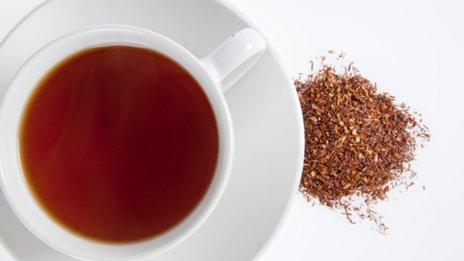South Africa grapples with worst drought in 30 years
- Published
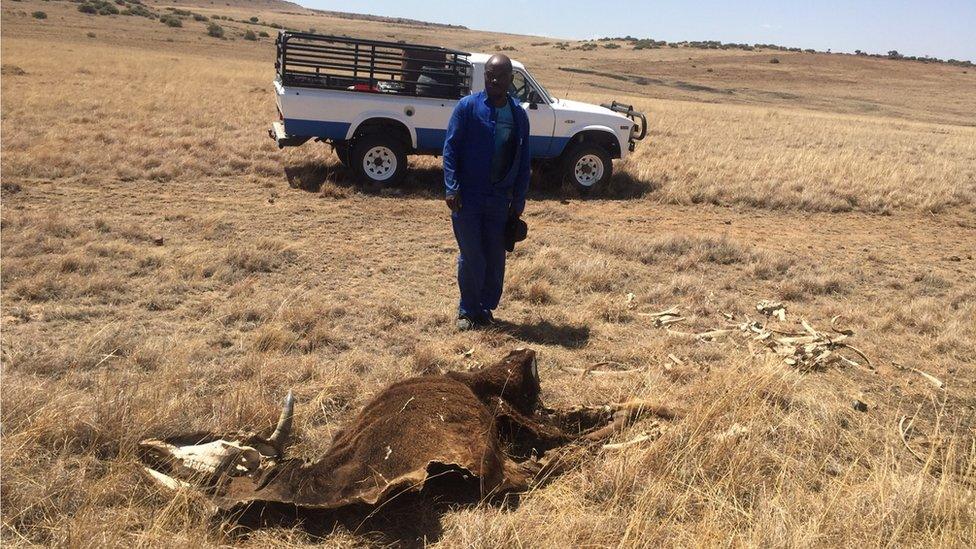
The drought in South Africa has affected many farmers
South Africa is facing one of the worst droughts to hit the region in 30 years. Many small farmers are expected to go out of business as food production and prices increase, especially in the Free State province.
In the middle of what used to be a watering hole, a black calf whose name is Kgantsho a Sotho name which means "the black one", is trapped in thick clay, too weak to pull itself out.
It's only a matter of time before it dies from dehydration and hunger.
Kgantsho had been missing for two days.
His owner, Thuso Kalane wanted to show us where he found the carcasses of six of his cows last month, only to find yet another one close to death.
There was no time to waste. More manpower was needed. So the BBC team had to put the cameras and notebooks down to assist with the rescue.
Nomsa and cameraman Glenn Middleton help Mr Kalane rescue Kgantsho
"This is heartbreaking, as I'm losing out more than I should be gaining. It's only a matter of time before those who work for me also lose their jobs," said Mr Kalane after his calf was rescued.
Mr Kalane later drove us to his farm where the rest of his cattle are kept.
They recognised his vehicle and walked hastily towards it, hoping they would get some food. But all he had were buckets of water for his severely skinny herd.
'Dark clouds'
According to the South African Weather Services, the drought, blamed on extreme weather system El Nino, is the worst to hit the country since 1982.
Although El Nino is a natural cycle that scientists have observed for many years, they have little doubt that climate change is also a factor in the lack of rain.
The government has declared five of its nine provinces drought disaster areas for agriculture.
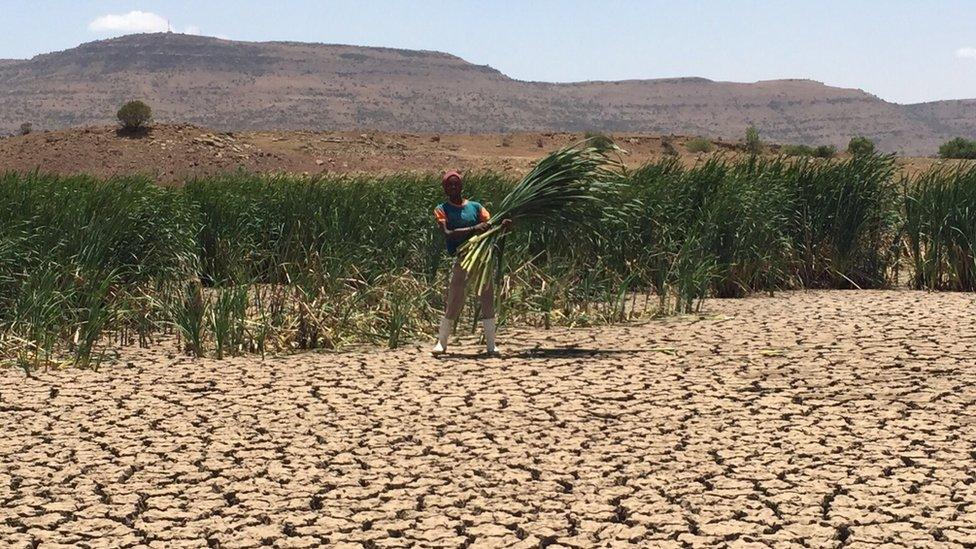
The government has set aside $21m for drought relief for farmers
As we drove through Wepener, a small town 452km (280 miles) from Johannesburg, the devastation was evident on the landscape, which is normally lush and green during the summer months.
Many farmers have been struggling to find water and fodder for their livestock. Some are forced to sell as many of their livestock as soon possible to avoid further losses.

Drought in South Africa:
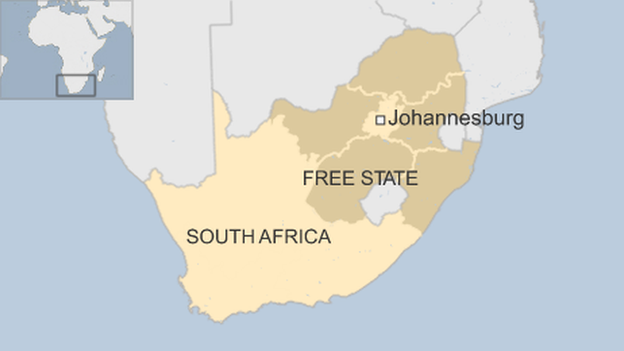
Worst drought since 1982
Disaster areas for agriculture declared in five provinces in north and east, including Free State
Lack of rain blamed on El Nino effect
South Africa has declining but sufficient stock levels of white maize until the end of April; yellow maize stocks will be very tight.
UN says 11 million children at risk from hunger, disease and water shortages in east and southern Africa because of El Nino

The ground is too dry to plant anything. Tractors plough through dusty soil as cornfields are laid bare.
Everyone here is hoping and praying for rain. At this time of the year, maize crops are normally over one metre high.
However thousands of hectares of land have been left with brittle stalks from last year's harvest.
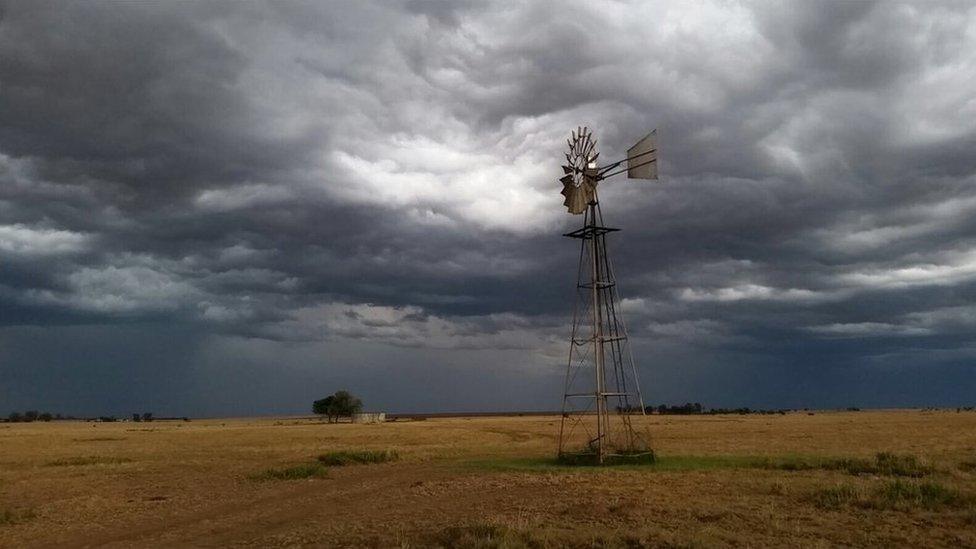
The clouds are dark but the rains have not come
Dark clouds hover above, threatening to rain, as commercial farmer Pitso Sekhoto takes me through his maize field.
"Just look at the clouds, they're thick, black and beautiful, every farmer's dream, but there's not enough rain," said a frustrated Mr Sekhoto.
He's been a farmer since August 2008 and told me things have never been this bad.
"The country may be forced to start importing maize, food prices are bound to go up and those who are often referred to as the poor of the poor will suffer the most," he said.
Poor rainfall has resulted in late planning, with many farmers saying if no major storm arrives in the next two weeks, nothing will be planted this season. This also means there's not enough cattle fodder to last through the winter months of next year.
A time of uncertainty
Water restrictions have also been imposed in major cities.
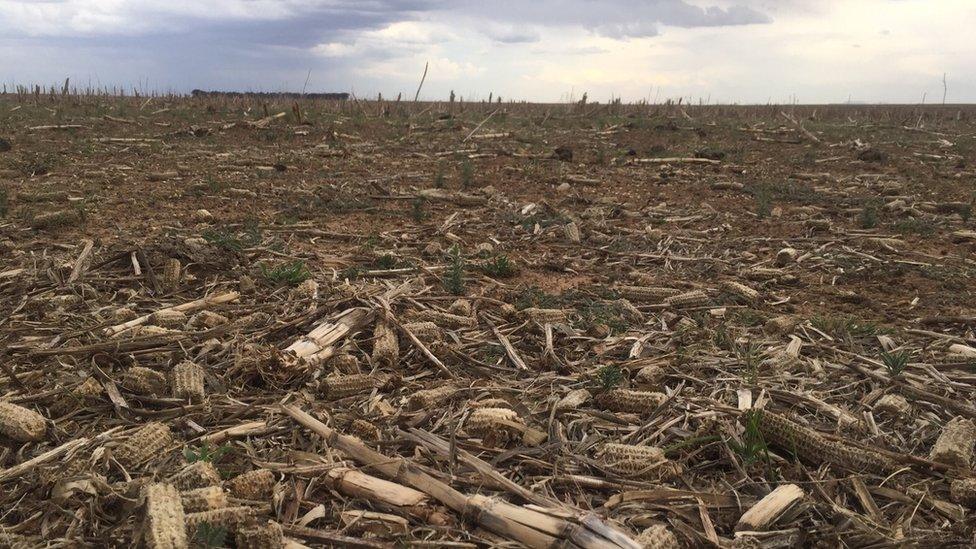
Many farms have been left barren
Residents have been warned to use water sparingly, only to water their gardens at certain times or face penalties.
While some subsistence farmers have been given fodder for the livestock, the government announced recently that it had set aside 300m rand ($21m; £14m) to assist commercial farmers - who had criticised the government for its slow response.
The prospects of rainfall look promising but the ever-changing weather patterns brought on by climate change could still affect the country's food security.
As experts warn that this may not be the last dry spell, the country's farmer are facing uncertain times.
- Published10 November 2015
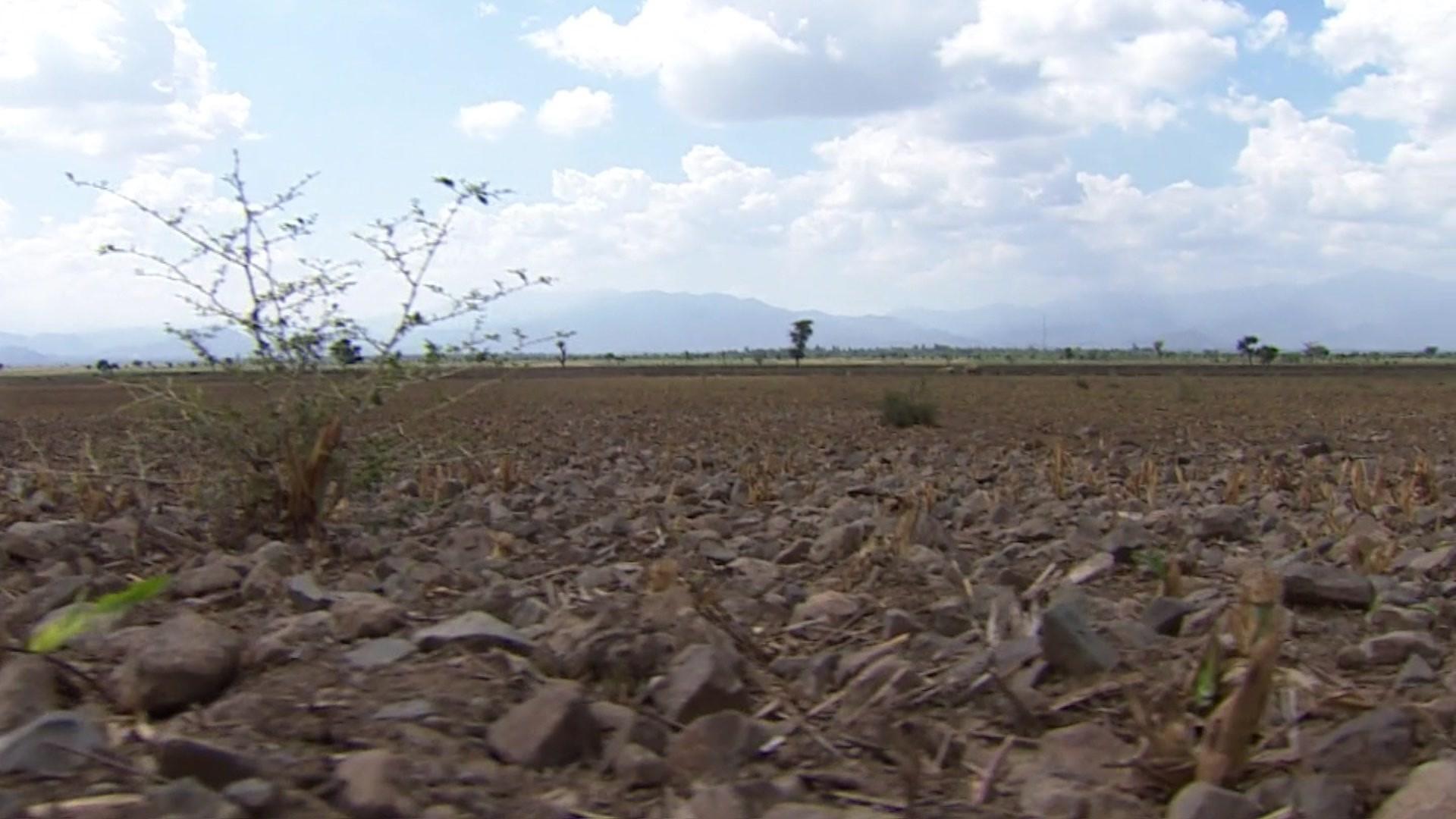
- Published4 February 2012
